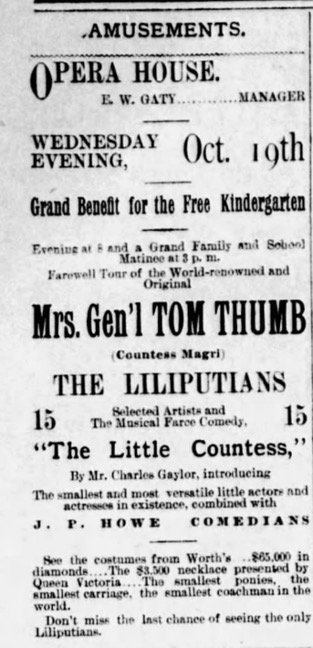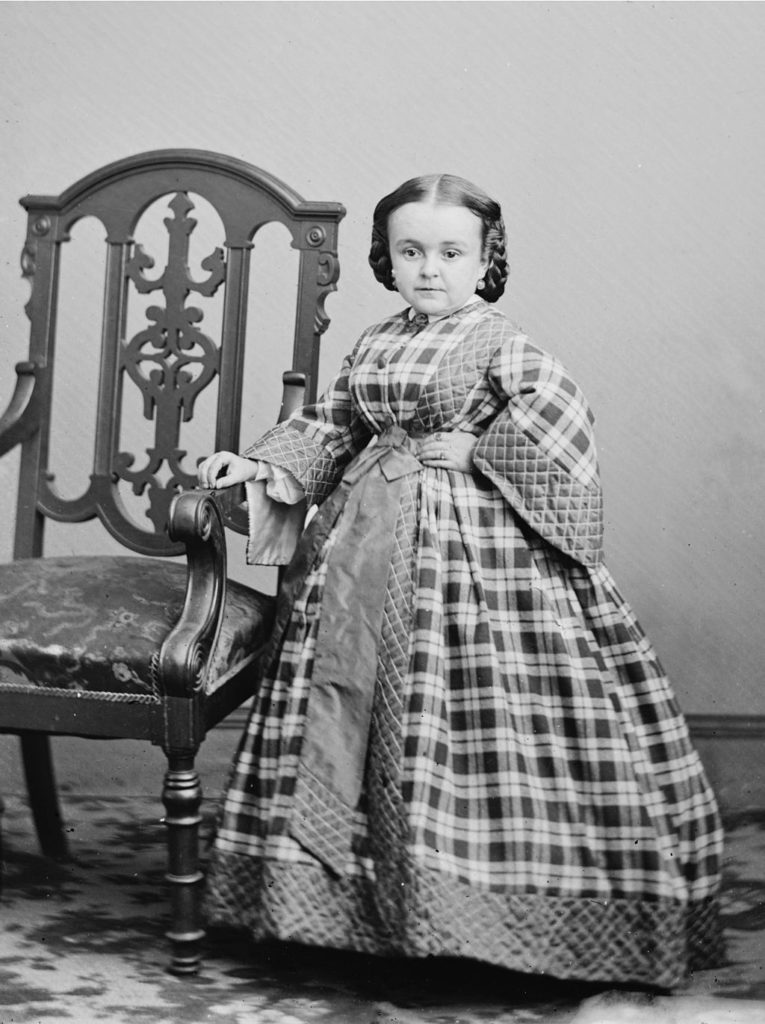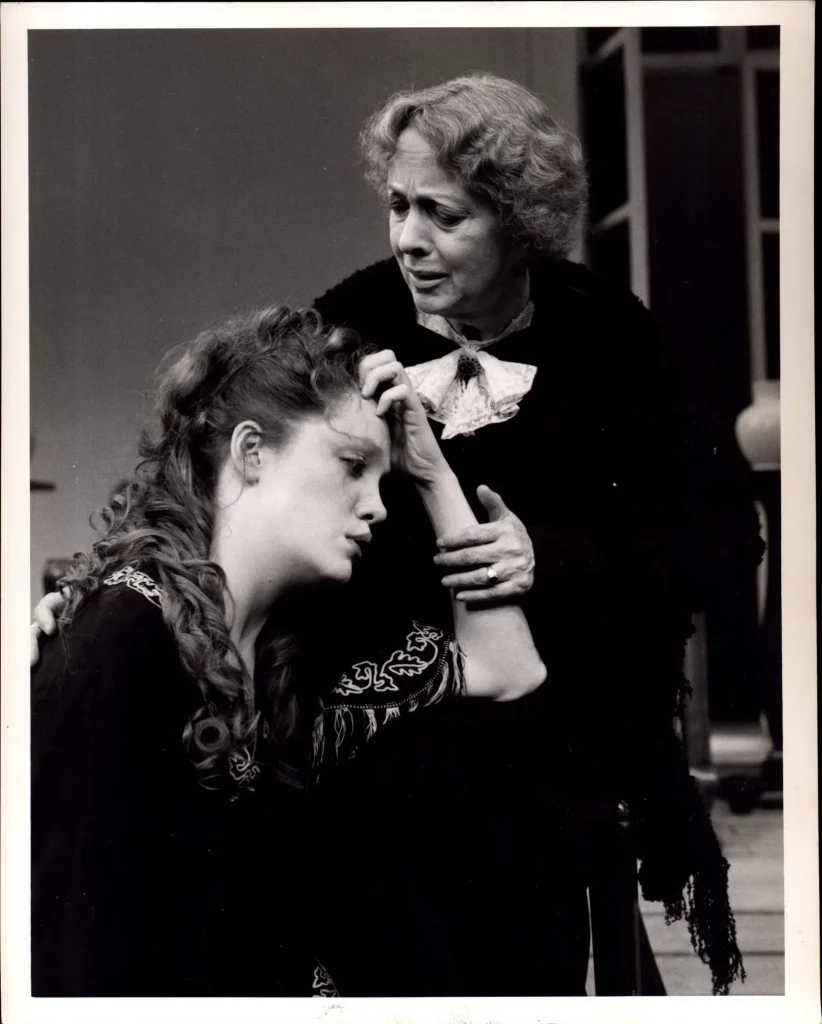October 1892 (130 years ago)


Billed as “Mrs. General Tom Thumb (Countess Magri) and the Lilliputians,” Lavinia Warren appeared at the Lobero Theatre in Santa Barbara, Calif., on Oct. 19, 1892. She arrived on the stage bejeweled, decoratively dressed and transported in an ornate carriage led by groomed mini-horses, and, for the evening’s entertainment, she and her troupe performed a series of skits and scenes. By this time, at 51 years of age, Lavinia had been a performer for over 35 years of her life. Due to a rare genetic condition, she had stopped growing in early childhood and stood at a heigh of about 32 inches. In her teens, she was recruited by P.T. Barnum and soon became a sensation across the world. She and her first husband, Charles Stratton, performed together for years, traversing the world with their act and even received an invitation to the White House by President Abraham Lincoln after their marriage. A few years following Charles’ death in 1883, Lavinia married the musician Count Primo Magri, and together they created and toured with their new company of “the Lilliputians.” Lavinia Warren remained a performer late into her life and passed away in 1919.
October 1972 (50 years ago)
The Indiana Repertory Theatre opened their doors at the Athenaeum in Indianapolis with a production of Brandon Thomas’s farce Charley’s Aunt. The production was directed by one of the founders of the Theatre, Edward Stern. Stern had met his fellow co-founders of the theatre, Benjamin Mordecai and Gregory Poggin, when they were all graduate students at Indiana University. Together the team put together a plan for a repertory theatre company and shopped various towns across the country to take up residence by sending letters of interest to more than 90 U.S. mayors. The city of Indianapolis showed the most enthusiasm for a new theatre and just happened to be the nearest locale to the three collaborators. Charley’s Aunt, which opened on Oct. 18, 1972, set the theatre on an artistic path has sustained for more than 50 years. In 1980, the theatre moved to its current home at the Indiana Theatre, mere steps from the Indiana State Capitol.
October 1987 (35 years ago)

María Irene Fornés directed the premiere of her own work Abingdon Square at the American Place Theatre for the Women’s Project. The play follows Marion, a teenaged woman married to a much older man, and explores the strictures women face in domestic life. When Marion matures and embarks on an intimate affair that threatens her family commitments, the consequences force her to examine her sexual self alongside her social and familial obligations. Critics admired the text and Fornés’ directing. Mel Gussow, in an Oct. 17 New York Times review, said that, in her directing, “Ms. Fornes has come closest to realizing her intention as a playwright.” The work received the 1988 Obie award for Best New American Play.
October 1982 (40 years ago)
Over Easy, or Las aventuras del Huevo, the first production of Teatro Meta, premiered at the University of California San Diego’s Mandeville Center Auditorium. The devised production by Stephen Most, dramaturg Felipe Zatarain, directors William Virchis and Dr. Jorge Huerta, and the cast explored migration to San Diego’s Barrio Logan from Mexico in a comedic and heartfelt new work. Teatro Meta, the brainchild of directors Virchis, Huerta, and Craig Noel, executive producer of San Diego’s Old Globe Theatre, served as an early incubator for bilingual playwriting and education at the Old Globe. Later Virchis and Huerta would collaborate to found Teatro Máscara Mágica in 1989, a multicultural theatre also located in San Diego County, now entering its 33rd year.
October 2002 (20 years ago)

A wet, wild, and weird new work by performance artist/comedians Carmelita Tropicana and Marga Gomez premiered at Performance Space 122 in New York. Single Wet Female—borrowing its name and basic central plot from the 1992 film Single White Female—has a white, blonde femme woman (Gomez) desiring a new roommate and getting much more than she bargained for when a butch, dark-haired Latina stranger (Tropicana) moves in. Where the film titillates with subtle homoeroticism, Single Wet Female spit on subtlety in a work that challenged heteronormativity, the male gaze, and whiteness, while being hilarious and Hitchcockian all at the same time. Following the New York performance, the work toured across the United States, with stops in Austin and San Francisco.


